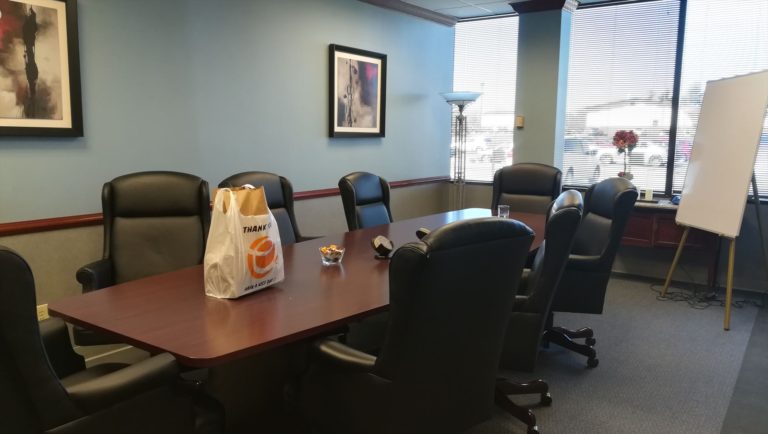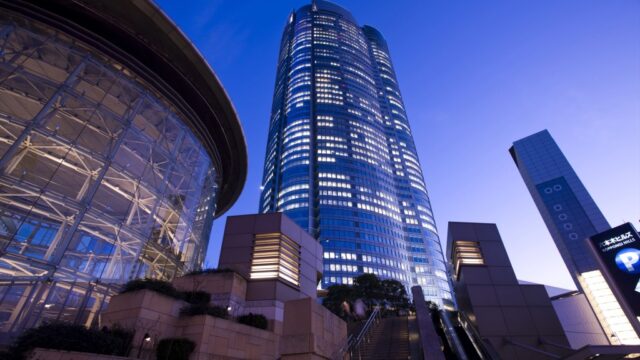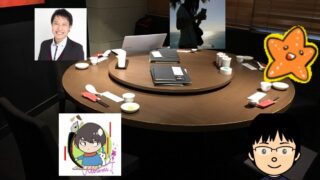目次
はじめに~シーゲル流投資は米国ではどうなのか?~
ジェレミー・シーゲル著「株式投資の未来」は、日本の米国株投資家に非常に大きな影響を与えました。
そんなシーゲル流投資ですが、実際のところ、米国では評価を得ているのか?
ふと、そんな疑問が湧きました。
せっかくだから、シーゲル氏と交流のある米国機関投資家に直接聞きに行けたりしないかなー・・。
そう思っていた折、ふとこんな記事を発見しました。
Xavier University(ゼイビア大学)にて行われた、
「McCormick investment symposium(マコーミック投資シンポジウム)」にて、
ジェレミー・シーゲル氏本人(写真:左から二番目)が出演していたのです。
そこで、記事の出処である企業「Total Wealth Planning」のCOO(最高執行責任者)であるRobert Siegmann氏(写真:一番左)にダメもとで手紙を書いて送ったところ・・
お会い頂ける事になりました。マジか。
という訳で行ってきました、シンシナティ!
(※本記事では、現地で本人の許可を得て、英語で質疑応答を行い、録音データから私がリスニングで文字を起こして翻訳しました。
諸々の誤訳・誤字・文法ミス・用法ミスなど、ご容赦下さいませ。)
Robert氏(Total Wealth Planning COO)に聞いてみた
It’s very nice to meet you.
どうも、ロバートさん。岩波慶と申します。
お会いできて光栄です。
会えて光栄です、ケイ。
So, today I’d like to ask you “what is the radical(※innovative) investment style?”
私は日本の個人投資家です。
今日はあなたに「革新的な投資スタイルとは何か」について伺いたいと思います。
In Japan, it’s very popular that invest like Jeremy Siegel’s style.
Do you know Jeremy Siegel?
日本では、ジェレミー・シーゲル氏の投資スタイルが人気です。
ジェレミー・シーゲル氏はご存知でしょうか?
はい、良く知っていますよ。
シーゲル流の投資スタイルでは、米国株を長期で買い持ちして、配当を繰り返し再投資し続けます。
And, That’ll be the best way to invest and it outperforms S&P 500 for long terms, as he says.
So do you thinks it’s radical(※innovative) choice or not?
それが長期投資の最善手であり、市場平均をアウトパフォームする、とシーゲル氏は述べています。
これは革新的な方法論なのでしょうか?
And I’ve been in the financial planning business for the past 25 plus years.
It’s been a lifelong career for me and I love it, and I’d love to solve others.
(まずは自己紹介から、という事で)
私の名前はロバート・シーグマンです。
私はファイナンシャルプランニングのビジネスを25年以上営んで来ました。
それは私の生涯を通した、人助けのライフワークでもあります。
So I’m familiar with many different investment styles.
And I’ve seen investment styles come and go.
そのため、これまで様々な投資方針に精通して来ました。
Somebody like Jeremy Siegel, that takes the approach of buy & hold,
and to favor stocks over bonds or cash.
It’s something that i agree with philosophically.
シーゲル氏の投資アプローチが好きな人は確かにいます。
バイ&ホールドを主とし、債券や現金より株式を好むという面で。
基本的には、私もそのスタンスに同意する部分があります。
Now I think Jeremy Siegel’s main point from my perspective is,
the stocks will always outperform the bonds and treasuries and real estate,
over the long hall, but only if you buy them and you hold them, and you reinvest dividends.
シーゲル氏の重要なポイントは、私の理解ですが、
株式は長期では常に債券や不動産をアウトパフォームして来ました。
ただし、買った後にホールドして、配当再投資を行った場合にのみ、です。
Well, you can reinvest dividends or not,that all depends on your situation.
But, if you hold stocks a basket of diversified stocks, for 10, 20, 30 year period,
historically speaking, you’ll do much better in terms of growing your money,or growing your wealth,
then if you will hold your more short term safe assets, like cash or bonds or CDs.
あなたが配当を再投資できるか否かは、多分に状況次第です。
しかし、10年、20年、30年と分散された株式をホールドすれば、
歴史を振り返るなら、債券、現金といった安全資産より多くのリターンを得られました。
So, That’s the Jeremy Siegel way.
Now I’d like to just… you know..
Somethings that I’ve seen over the years is, “investors tend to get excited”.
それがシーゲル流の投資方針ですよね。
ただ、ここでちょっと待って欲しいのですが・・・
私が今までに見てきたのは、「投資家は熱狂しやすい」という事です。
Investors get excited when the media talks about technology, or emerging markets, or real estate, or gold, or bitcoin, or whatever it is.
The media is always looking for a story and the media does disturb us to many many investors.
メディアの情報、例えばテクノロジーや新興国、不動産、金、ビットコイン、他諸々・・
そういった様々な物語によって、多くの投資家は熱狂し、かき乱されるのです。
So, I’ve seen the investors get excited to the Tech bubble, and lose 80 – 90% of their value.
I’ve seen the investors get excited to the bitcoin, and I think, the stories will start to come out,
the focus on probably lost, you know, 20% to 50% of their value.
私は、投資家がITバブルに熱狂し、80%~90%の資産を失う様を目の当たりにしました。
また、ビットコインに熱狂した時は、損失は20%から50%はあったと聞きます。
So, I believe the best approach is to diversify, and to diversify based on your “appetite for risk”.
そのため、一番のアプローチは、「リスク許容度」に応じて分散させることです。
I believe that short term pain volatility is necessary for long term gain.
And “the stocks for the long run” only works if you have a long time horizon,
And you also willing to stomach the ups and the downs, you know,
the fears and the euphorias that come along with the investment markets.
私は、短期でのボラティリティーは、長期でのリターンのために必要だと考えます。
シーゲル著『株式投資』では、まず長期である事が前提であり、
投資家は、株価の上下変動だけでなく、
市場を覆う恐怖や幸福にも耐え続けなければなりません。
So what I say, to diversify, I don’t necessarily believe that you can diversify enough of individual stocks.
So, for the clients I work with, I use mutual funds, and I use ETFs.
And the reason I use the mutual funds and I use the ETF,
so ‘cause I want to focus on the asset class like US large cap stocks, or US small campanies value …
分散については、個別株での分散は必ずしも十分ではない、と私は考えます。
そのため、顧客には投資信託やETFを勧めます。
投信やETFを進める理由は、米国株の大型株や小型株といった資産クラスに集中させ・・・
小型株、中型株、不動産で言うREITのような・・?
I don’t necessarily like commodities very much, ‘cause commodities, kind of, like gold or other future…
実物資産という面では、そうですね。
ただ、コモディティ商品は特別好む訳ではなく、例えば金や他の・・
大豆や原油といった商品ですね。
They don’t have really intelligent people working for them.
コモディティ商品は配当を生みません。
取り扱うのは賢明とは言い難いでしょう。
おっしゃる通りです。
So, what I’m talking about real assets, yes, I’m talking about real estate or infrastructure,
those type of things that will revenue producing tangible assets.
So, you know, I believe in diversifying of cross the entire globe, buying not only US stocks, as US investor,
I believe in buying stocks of foreign countries.
収入、利益を生むもの。
実物資産で言えば、不動産やインフラといった、収益を生む有形資産ですね。
米国投資家として、米国株だけでなく、幅広い資産に分散すべきです。
外国株も重要ですね。
It diversifies for every countries stocks.
例えばVT、バンガード・トータル・ワールド・ストックですね。
日本で人気のETFで、株式で世界分散投資が出来ます。
because the gain you’re getting broad diversification across company size, and country of origin.
Now, from my clients, for example, who are US investors, they are “strong bias” towards the US.
Meaning, if 45% of the investable world is the US stocks, my clients may holds 60% to 70%.
ええ、それも良いアプローチです。
企業規模や国を横断して投資対象を分散できますね。
ここで私の顧客、つまり米国投資家ですが、彼らは米国に”強いバイアス”を持ちます。
世界株式の45%が米国株ですが、彼らは60%から70%をホールドしています。
So I call it “a home country bias”.
‘Cause my clients will going to retire and they’re gonna use their money in US,
so instead of buying what the world looks like, 45% US, 45% developed market, like Japan, Europe, Britain, and…
私はこれを「母国バイアス」と呼びます。
彼らはいずれリタイアし、米国内で消費するからです。
世界経済を買うというのは、まず45%の米国、それから45%の先進国、そして・・
新興国、と?
So my clients may only have 7% or 8% of their portfolio in emerging markets because it’s very risky.
そう、10%か20%が新興国株ですが、これは非常にリスクが高い部分です。
そのため、私の顧客は7、8%に留めています。
So brought diversification, and diversify within those asset classes, and keep your costs slow funds like ETFs, or vanguard funds.
I really like DFA, “Dimensional Fund Advisors”, Eugene Fama and Kenneth French, have a lot of the academic work behind, the DFA funds.
投資対象を分散し、資産クラスも分けて、ETF等で運用コストを抑える。
特にDFAのファンドは、ファーマ-フレンチの学術的背景を持ち、私は高く評価しています。
But then, once you invest and you diversify, you can’t just close your eyes and come back 20 years.
You have to, sort of, rebalance.
ただ、分散投資したからといって、ただ目を閉じて20年過ごせば良い訳ではありません。
リバランスが必要です。
‘Cause I got a little hand puppets, right?
So these are stocks, and these are bonds, and stocks do very well, tipically people like to buy more because they done well.
Well, I say sell a little bit of these, and buy some of the bonds, right? so you always in balanced.
ハンドジェスチャーで示しますが、左手が株で、右手が債券としましょう。
株が好調だと、人々は株をさらに買い増ししたくなります。
しかし、ここでは債券を買い増して、バランスを保つべきなのです。
And then when you have a bad year, stocks go down, and bonds maybe go up a little bit,
now you can sell some of those bonds, and buy some of the stocks…
反対に、株が不調の年で、債券が上がったという場合は、
債券を売って、株を買うというように・・
ちょうど今年(2018年)のように、ですね。
So this is your portfolio, and gets out of what because the markets are doing different things,
you always want to bring it back.
そう、これがリバランスです。
あなたのポートフォリオに対して、市場は様々な事をしてきますから、
あなたはそれを元に戻したいのです。
When you think about, my hand gesture is right? You’ve got, stocks doing well, bonds, you know, take some profits.
When you take those profits, when you buy back, stocks go down, you sell some your bonds,
and what you’re doing you, selling high, and you buying low.
ここで、株や債券が好調だとして、あなたはそこから利食いをします。
利食いをして、あなたが買い戻す時に株価は下がり、そして債券も売る。
高く売って、安く買う、という訳です。
So, that rebalancing happens once a year, twice a year, the key on rebalancing this to be insistent.
So start with structure, how much in the US, how much outside the US, how much are stocks, how much are bonds.
And they say, this is my structure, this is how you’re going to fill the structure,
このリバランスを年に1、2回行うのが、再調整の鍵です。
米国株と外国株はどんな割合か、株式と債券はどんな割合か、という構造です。
こうした構造は、こうやって埋めるのです。
I say structure I really need to diversified portfolio, then it’s, I’m going to sell, I reminder on my phone, or on my computer,
to say, look at this every 6 months, and bring it back that structure, no matter what happened.
If are emerging markets are upper 100%, don’t get excited and say, let’s put more there….
再調整のために売る商品は、携帯やコンピューターにリマインドしておきます。
半年ごとにこれを見直し、何が起こってもリバランスを行う。
もし新興国株が100%上昇しても、熱狂せずにまずは・・
まずは落ち着いて・・
Because if are emerging markets is upper 100%, maybe…
落ち着いて利食いをするのです。
何故なら新興国株が上がったとしたら・・
今度は落ちてくる・・
We call that like a “Mean Reversion”.
間違いなく落ちます!
これは相場の「平均回帰性」と呼ばれます。
「平均回帰性」。
So like,if is emerging markets are upper 100%, maybe real estate is down 10%, or naturally as humans,
we say, “Oh, I don’t want the real estate, it’s poor performer. I want emerging markets.”
そう、「平均回帰性」です。
もし新興国株が100%上昇し、不動産は10%下がったとして、
人間心理なら「不動産はパフォーマンスが悪い、新興国株が欲しいな」となります。
So most people, sell their real estate, because it’s down, and they buy the thing that’s serve them well.
I call that “Chasing Returns”.
そして多くの人は不動産を売り、好調なものを買うのです。
これを私は「リターンの追っかけ」と呼びます。
‘Cause you’re chasing, you’re buying what already has launch to the space. Right?
Ah, you know the tech boom, the technology boom like 90’s, it was like a rocket ship.
And if you were on the rocket ship already, it was dangerous to try to hop on after it launched.
既に宇宙に打ち上げられたロケットを「追っかけて」、買ってしまう。
90年代のITバブルが、まさにそれでした。
あなたがもしロケットに既に乗っているのなら、
打ち上げられた後で更に買い増すのは危険です。
打ち上がる前ならともかく、後では遅いという事ですね。
Because it’s already done so well.
It’s like buying Apple and Facebook, Amazon today.
その通りです。
もう打ち上がってますからね。
それは今日でのアップル、フェイスブック、アマゾンを買うような行為です。
「ファング」銘柄ですね。
It’s very risky because all of those access returns have already been realized.
Who knows what the future holds, I don’t know what the markets gonna do on monday,
but I do know the over the next 10, 20 years back Jeremy Siegel,
over the next 10, 20 years I will do better investing in stocks, on the global basis,
that I will hiding cash, or bonds, or treasuries.
そう、「ファング」です。
なぜ危険かというと、リターンが既に認識されているからです。
市場が月曜日にどうなるか、といった未来は分かりません。
しかし10年後、20年後でも分かる事はあります。
グローバルな株式投資が、現金や債券をタンスにしまっておくよりはベターだという事です。
なるほど・・。
Do we talk about a little bit about I do?
他には?
私の仕事についてもう少しお話しましょうか?
はい、是非!
So I help clients with that structuring with picking investments, and with rebalancing.
私の仕事の要は、プロの投資の世界で、「顧客はポートフォリオよりも重要だ」と捉える面です。
私は顧客の投資対象の選定やリバランスを手助けします。
I do all of that for them because, we as humans, are tired to money with emotions.
It’s very difficult to make those decisions like selling some of those emerging markets in the upper 100%, and buying “The Loser”.
That was …
私達は人間として、お金にただ振り回されるのはストレスだからです。
売買の決定を下すのはとても難しいことです。
特に、好調な新興国株を売り、不調な商品を買う、といった・・
ええ、個人投資家にとって、全ての判断を下すというのはくたびれますよね。
So I help them with the investment side, but more importantly, I help them with the financial planning side things.
So my clients have families, they have children, they have golds, they want to send their children to college.
そうです。
そのため、彼らの投資面だけでなく、ファイナンシャルプランニング面も手助けします。
私の顧客は家族がいて、子供がいて、金を保有し、子供を大学に通わせたいのです。
So I help them create college plans, so their saving enough to pay for college, my clients drive cars, they have homes,
so they have needs, and they work, so they have needs to protect their income, protect their assets with insurance.
そして彼らは、大学のプランを立て、費用を工面し、車を運転し、家を買い、
働き、収入を保護し、また資産を保険によって保護する必要があるのです。
I don’t sell the insurance, but I know the insurance products I know the insurance markets.
So I give my clients advice on what is insurance policy they should buy, what coverage they should buy.
So they don’t overpay for insurance, or maybe they don’t have insurance.
私は保険を売りませんが、保険商品や保険市場を知っています。
そのため、どんな補償範囲でどんな保険商品を検討すべきか、彼らに助言するのです。
それにより、保険の払い過ぎもなく、あるいは保険自体が不要かも知れません。
I help my clients who want to give back to charity,
I help my clients who want to save on taxes, because they are things you can do in the US, in the tax code is always changing.
So my team and I, we stay up on the tax code, we don’t prepare the taxes and sending the forms,
but we look at the clients situation, we say,
他にも、募金したいという顧客や、節税したいという顧客もいます。
米国では税制も頻繁に改正される中、できる事は色々ありますし、
私達のチームでは、直接手続きはしませんが、顧客の状況を判断してこう言います、
“Well, we know your situation, we know the tax law.
This is what we can do to save you and your family taxes,
maybe not only you and your family but your kids, and your grandkids.”
We call that “Multi Generational Planning”.
「状況を加味し、税法を踏まえると、節税のためにこういう事ができます。
あなたの家族のためだけでなく、子供達、そして孫達のためにもなります」
これが「多世代計画」です。
「多世代計画」。
So often times, my clients will be the grandparents, and their children will be clients,
and then, their grandchildren become our clients.
はい。
顧客はいずれ祖父母となり、彼らの子供達が顧客となり、
そして孫達が顧客となるのです。
顧客だけでなく、その家族もまた重要である、と。
That’s why we do, what we do is to protect our clients, and protect our clients’ families.
Meet their goals and create the plan, and the plan gets you to those golds,
but there’s lots of unknowns, and surprises, and changes, and jobs, and deaths, and car accidents along the way,
so we make sure the all of those pitfalls along the way, the plan accounts for those.
その通りです。
顧客とその家族を包括的に保護するのが、私達の仕事です。
ゴールを見据えて、計画を立てますが、人生には様々な変化やアクシデントが生じます。
私達はそうした落とし穴にも対応出来るように、備えておくのです。
So we color the holistic picture.
Our clients are more than their portfolio.
‘Cause you’re so much more to financial independence in being wealthy,
then just putting money in the stock market and invest in it wisely.
私達は、いわば総合的に青写真を描きます。
顧客はポートフォリオ以上に大事です。
もし裕福で経済的に独立したいだけならば、
株式市場にお金を賢明に投じれば良いだけだからです。
なるほど、とても有意義なお仕事なのですね。
もちろんです。
ありがとうございました!
It’s been a pleasure talking with you.
こちらこそです、ケイ。
お話できて良かったです。
まとめ~機関投資家にとってのシーゲル流~
投資の世界で25年以上の実務キャリアを積んでこられたRobert氏のお話は、とても示唆に富んでいました。
過去、株式は長期では債券、金、不動産などをアウトパフォームし続けてきており、
また、高配当の米国個別株を長期でバイ&ホールドし、配当再投資を繰り返し続ける事で、
歴史を振り返れば長期で市場平均(S&P500指数)を上回って来た、というシーゲル流投資の魅力。
その思想体系に、基本的には賛成としつつ、しかしRobert氏はこうも主張します。
投資家は熱狂しやすい傾向にあり、ITバブルやビットコインバブルで資産を失って来た人々を実際に見てきたのだと。
そして、分散投資とリバランスは非常に重要であり、個別株だけでは分散は必ずしも十分とは言えず、
リスク許容度に合わせて世界分散投資をベースにポートフォリオを構築すべき、というスタンスである、と。
そのため、顧客には低コストな投信やETFを勧めている、との事でした。
確かに、自分の資産だけに責任を負えば良い個人投資家とは違い、
顧客の資産を預かって運用する、または助言を行うという機関投資家の立場では、
同じリスクでも、重みが全く異なります。
特に、顧客がこれからリタイアして、子供の大学費用や人生全体での金融プランを考える、という状況になれば、
世界分散投資に加え、債券も組み合わせてリスクを最大限にコントロールするのは当然の帰結かも知れません。
また、顧客だけでなく、顧客の家族、子供、そして孫の世代まで手助けする、というビジネスの理念には強く共感出来ました。
さらに文中で「平均回帰性(ミーン・リバージョン)」、「ファーマフレンチの学術的背景を持つDFAファンド」など、
私が初めて耳にしたフレーズもあり、大変勉強になりました。
Robertさん、お忙しい中お時間を割いて下さり、ありがとうございました!!
動画版(英語・日本語字幕付き)
関連書籍(ジェレミー・シーゲル著)
ジェレミー・シーゲル著「株式投資の未来」、通称“赤本“。
投資家間では言わずと知れた、レジェンド級の名著です。まだ読んだ事がない方は必読です。
ジェレミー・シーゲル著「株式投資」、通称“緑本“。
「株式投資の未来」からさらに深く掘り下げたい方は、こちらも必読。
ジェレミー・シーゲル著「株式投資」、通称“青本“。
内容重複もありますが、もはやシーゲル先生にメロメロになってしまった方へ。









